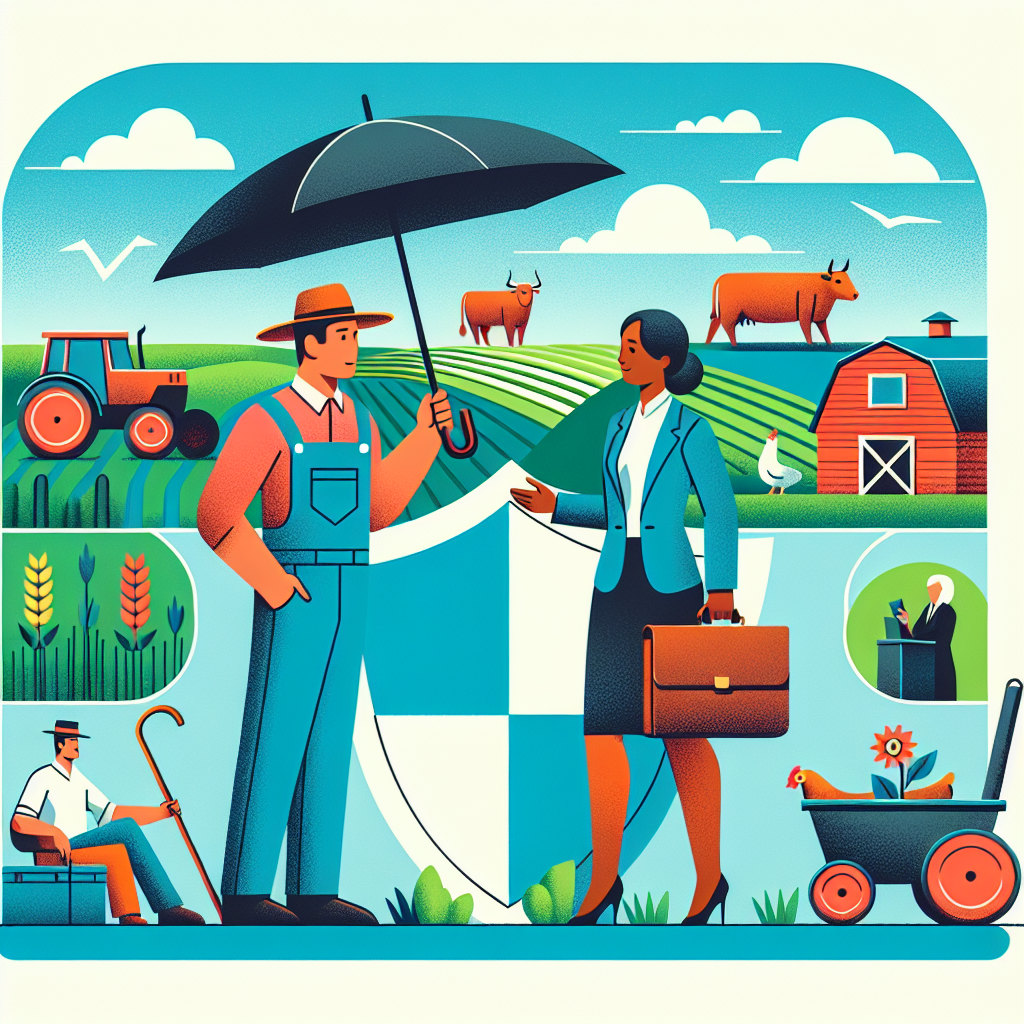Filed under Specialty Insurance on
Understanding Farmers Specialty Insurance Coverage

Farmers play a crucial role in sustaining our society, providing the food we eat and the raw materials that form the backbone of various industries. The unpredictable nature of farming, from weather extremes to market fluctuations, necessitates that farmers protect their livelihoods through comprehensive insurance coverage. This is where farmers specialty insurance comes into play. Understanding the nuances of this coverage can mean the difference between sustainability and loss in the face of unforeseen challenges.
What is Farmers Specialty Insurance Coverage?
Farmers specialty insurance coverage is a tailored insurance solution designed specifically to meet the unique needs of the agricultural industry. Unlike generic insurance policies, this type of coverage takes into account the diverse risks associated with farming, such as equipment breakdown, livestock illness, and crop failure due to pest infestations or adverse weather conditions.
The purpose of specialty insurance coverage is to offer a customizable package that addresses these specific risks, ensuring that farmers are protected against losses that could otherwise be devastating. This kind of coverage doesn’t just focus on the immediate farming operations but also considers the broader aspects of the farm as a business, including liability protection and property damage coverage.
Components of Farmers Specialty Insurance
Crop Insurance
Crop insurance is a vital component of farmers specialty insurance coverage. It shields farmers from revenue losses due to disastrous weather conditions or pest infestations, which are common threats to agricultural outputs. For instance, during a prolonged drought, crop yields may be significantly reduced, impacting the farmer's income. Crop insurance helps to mitigate these losses, allowing the farmer to maintain operations and financial stability.
Livestock Insurance
Just as crops are susceptible to natural disasters and disease, so are livestock. Livestock insurance provides coverage against risks such as accidental injury, disease outbreaks, and theft. For example, if a virus sweeps through a farmer's herd, causing illness and death, livestock insurance can cover the costs of veterinary care and compensate for losses, helping the farmer to recover and rebuild.
Farm Equipment Insurance
Farming relies heavily on machinery, from tractors to harvesters. The breakdown of such equipment can lead to significant disruptions in farm operations. Farm equipment insurance covers the repair or replacement costs of essential machinery, protecting farmers from financial strain resulting from unexpected mechanical failures.
Farm Liability Insurance
Farm liability insurance is another essential aspect of farmers specialty insurance coverage. It protects farmers from legal claims arising from injuries or damages that occur on the farm property. For instance, if a visitor slips and falls while touring the farm, liability insurance can cover the medical costs and legal fees, sparing the farmer from potentially crippling expenses.
Property and Casualty Insurance
This type of insurance protects against damage to physical farm properties caused by natural disasters like floods, fires, and storms. It ensures that barns, silos, and other farm structures can be repaired or rebuilt, allowing for quick recovery and continuation of operations.
Real-Life Examples of the Importance of Specialty Insurance
Consider the case of a small family farm in Iowa that experienced a severe drought, resulting in crop yield reductions of up to 70%. With crop insurance, the farmer was able to recover a significant portion of the lost income, which supported the family through the difficult season and allowed for investment in irrigation infrastructure to mitigate future drought risks.
In another instance, a livestock farmer in Texas faced an outbreak of a contagious disease that led to the culling of 30% of the herd. Livestock insurance not only compensated for the lost animals but also covered the costs of disinfection and vaccination for the remaining livestock, effectively preserving the farmer's livelihood.
Practical Advice for Choosing Farmers Specialty Insurance
When considering farmers specialty insurance coverage, it's crucial to evaluate the specific risks associated with your farming operations. Here are some practical tips to consider:
- Assess Your Risks: Identify the primary risks your farm faces. These could include weather uncertainties, market pressures, or machinery dependencies.
- Custom Coverage: Work with an insurance agent experienced in agriculture to tailor your policy to address your farm's unique needs. Avoid one-size-fits-all policies.
- Understand the Coverage Options: Familiarize yourself with the different components of specialty insurance, including crop, livestock, equipment, liability, and property insurance.
- Compare Providers: Different providers offer varying levels of coverage and premiums. Shop around to find a provider with a solid reputation and favorable terms.
- Review and Update Regularly: As your farm grows and changes, so too should your insurance coverage. Regularly review and update your policy to ensure it continues to meet your needs.
Frequently Asked Questions about Farmers Specialty Insurance Coverage
1. What distinguishes farmers specialty insurance from traditional commercial insurance?
Farmers specialty insurance is specifically designed to address the unique risks associated with agriculture, whereas traditional commercial insurance often lacks coverage for agricultural-specific perils such as crop failure, livestock illness, and equipment breakdown.
2. How can I determine the right level of coverage for my farm?
A thorough risk assessment of your farming operations is essential. Consider working with an agricultural insurance expert who can help identify potential risks and tailor coverage that fits your specific needs, ensuring comprehensive protection.
3. Is crop insurance mandatory for farmers?
Crop insurance is not mandatory, but it is highly recommended. Without it, farmers risk bearing the full brunt of financial losses due to unforeseen events like natural disasters. Many farmers opt for crop insurance to secure their livelihoods against such uncertainties.
4. Can farmers specialty insurance coverage be adjusted if my farm expands or if I diversify my operations?
Yes, farmers specialty insurance is designed to be flexible. Policies can be adjusted to account for expansion, diversification, or changes in farming methods, ensuring that your coverage remains adequate and relevant.
5. Are there any government programs that support farmers in obtaining specialty insurance coverage?
Yes, in many countries, government programs such as the Federal Crop Insurance Program in the United States provide support and subsidies to make specialty insurance more accessible and affordable for farmers. These programs aim to reduce the financial burden of insurance premiums and encourage widespread adoption.
In conclusion, farmers specialty insurance coverage provides essential protection for those in the agricultural sector, safeguarding their livelihoods against a multitude of risks. By understanding the components and benefits of this type of insurance, farmers can make informed decisions that will help secure their future and ensure the sustainability of their operations.





